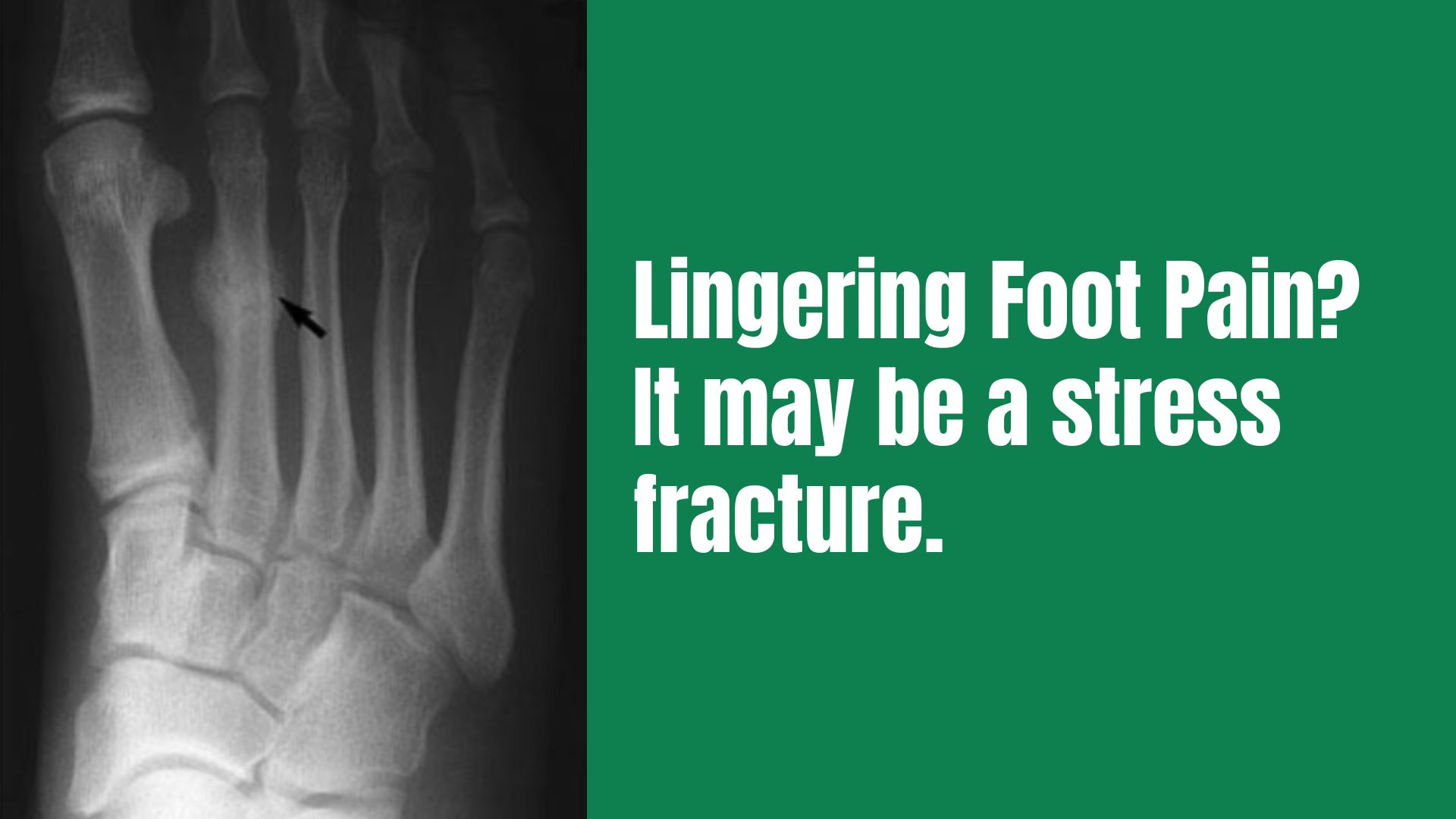Lingering Foot Pain? It May Be a Stress Fracture
Your feet bear the weight of your entire body with each step. Amidst this constant pressure, the metatarsals – the bones connecting your ankle to your toes – play a vital role in maintaining proper foot function. In this blog post, we will explore the world of stress fractures in the metatarsals, shedding light on causes, symptoms, and essential steps for recovery.
Understanding Metatarsals:
Your metatarsals act as both shock absorbers and stabilizers, pivotal for the effective absorption of pressure as you move. These bones are integral to your foot arch, contributing significantly to your mobility and overall foot health.
Who’s at Risk?
- Sports Enthusiasts and Active Individuals: Overuse, a common culprit, makes sportspeople and those who spend prolonged hours on their feet susceptible to stress fractures.
- Senior Individuals: Hormonal changes in senior ladies can lead to decreased bone density, making the bones more fragile and prone to fractures.
- Nutritional Factors: Low levels of calcium and vitamin D can compromise bone health, contributing to the vulnerability of the metatarsals.
- Foot Conditions and Biomechanical Issues: High arches, flat feet, and biomechanical problems affecting gait and posture can overload certain areas of the feet, increasing the risk.
- Weight: Being overweight adds additional pressure to the metatarsals, heightening the likelihood of stress fractures.
Recognizing a Stress Fracture:
Initial symptoms may be subtle, with mild pain and slight swelling. However, ignoring these signs can lead to worsening conditions. As the stress fracture progresses, the pain intensifies, accompanied by persistent swelling and tenderness around the affected area. Activities like walking become increasingly uncomfortable.
Taking Immediate Action:
- If you suspect a stress fracture, consider the following measures:
- Cease Physical Activity: Immediately stop engaging in sports or activities that exacerbate the pain.
- Prioritize Rest: Rest your foot as much as possible to facilitate the healing process.
- Footwear Matters: Ensure your shoes provide proper support and cushioning to alleviate pressure on the affected area.
- Review Your Diet: Assess your calcium and vitamin D intake to support bone health.
- Say No to High Heels: Keep high heels at bay, allowing your feet to recover without added strain.
- Ice and Medication: Apply an ice pack to reduce swelling and consider anti-inflammatory pain relievers (consult with a healthcare professional).
Seeking Professional Guidance:
While initial measures can alleviate symptoms, seeking a podiatrist’s advice is crucial. Align Foot & Ankle Clinic offers comprehensive support, including:
- Footwear advice
- Strengthening and stretching exercises
- Custom orthotics for cushioning and stabilization
- Padding and strapping for pain relief
- Immobilization solutions, offering boots to support the healing process
- Biomechanical assessments to review posture and gait
Moreover, our clinic is equipped with state-of-the-art X-ray technology to identify stress fractures accurately. If necessary, we may recommend further diagnostic measures, such as MRIs, for a more in-depth analysis.
For enhanced pain relief and accelerated healing, Align Foot & Ankle Clinic offers non-invasive laser treatment. Laser therapy has shown effectiveness in speeding up fracture healing, reducing soft tissue inflammation, alleviating pain, and improving range of motion. Consult with Dr. Ho-Ellsworth to determine if this advanced treatment is right for you.
Your foot health is our priority at Align Foot & Ankle Clinic, and we’re here to guide you on the path to recovery. If you suspect a stress fracture, don’t hesitate to reach out to Dr. Ho-Ellsworth for personalized care and advanced treatment options.
Don’t forget to check out our socials for valuable insights and updates:



